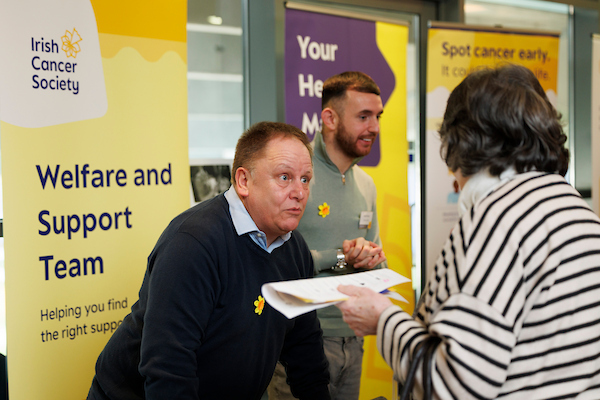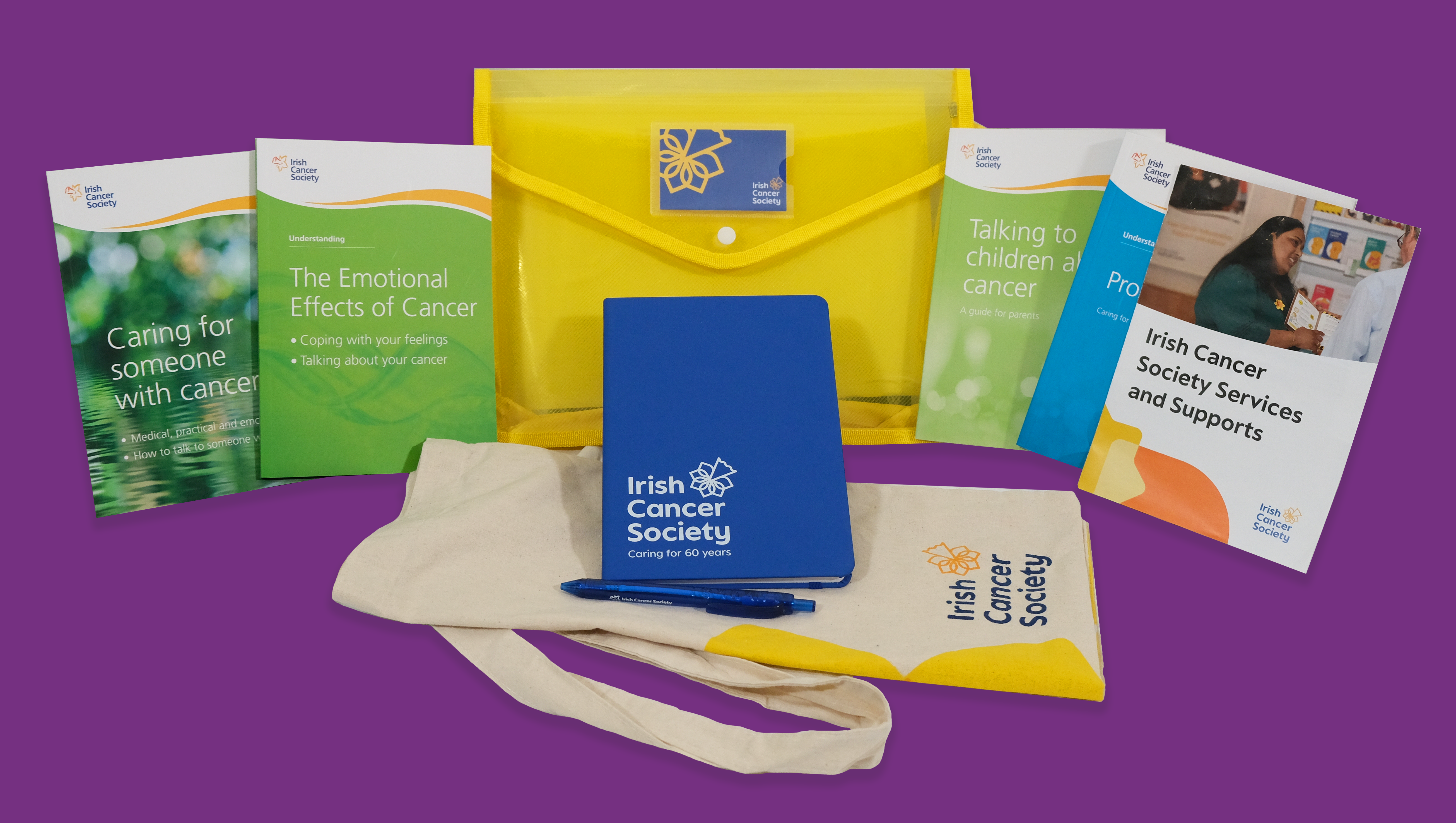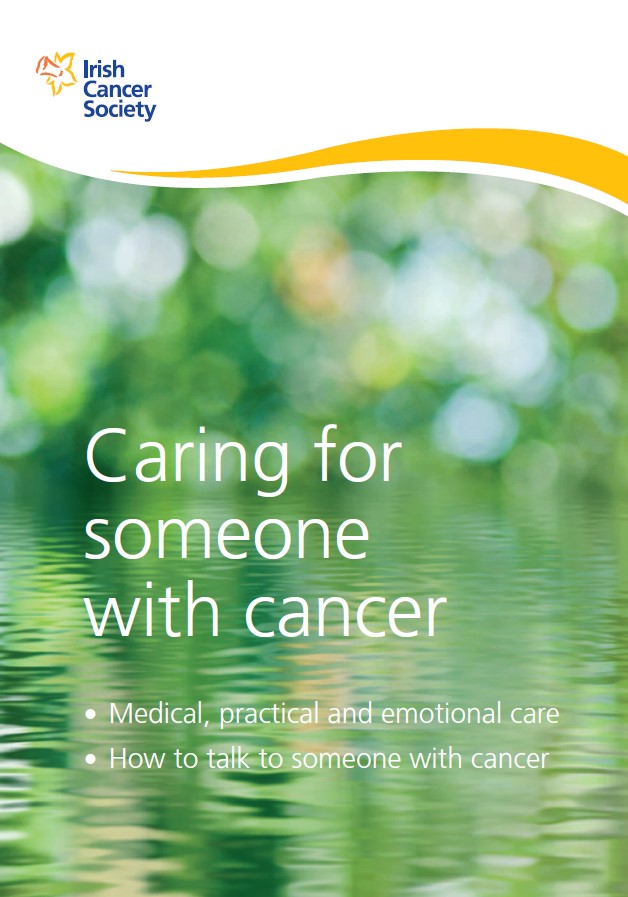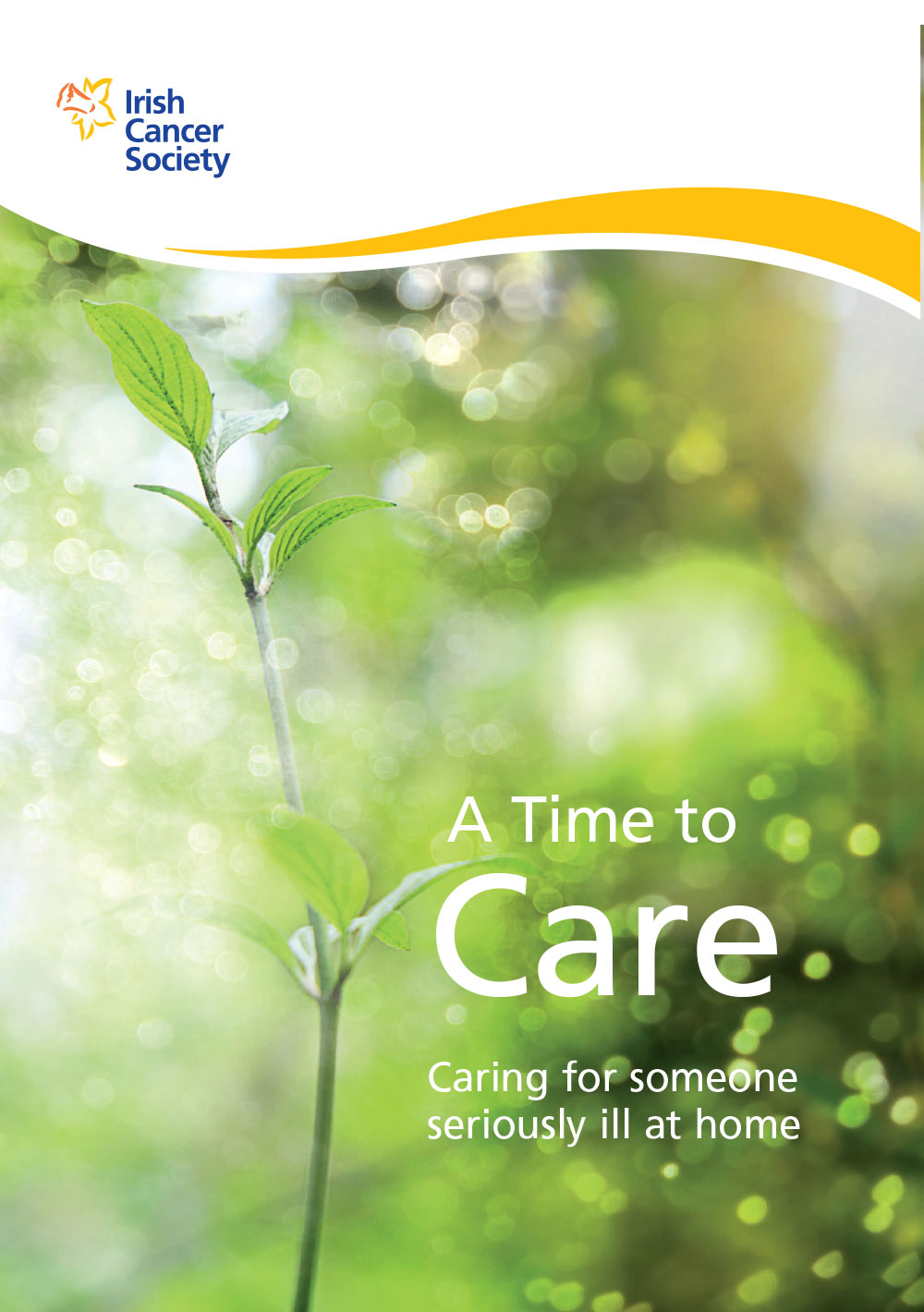Giving medical care
As a carer, you may have to provide medical care to your loved one. This could include giving personal care, giving medication and helping to manage side-effects.
What counts as medical care?
A carer is an important part of a person’s healthcare team. Carers often have to keep track of tests, treatments and medication, make sure their loved one attends appointments and communicate with doctors and the patient.
The medical care a carer may have to provide can include:
- Giving personal care
- Managing and giving medications
- Managing side-effects
- Going to hospital appointments with your loved one
- Reporting problems to the medical team
If you feel nervous about giving medical care...
Lots of carers feel nervous or overwhelmed about giving this type of care, but there are a couple of things you can do that may help:
- Try to learn about your loved one’s cancer, treatments and possible side-effects, and get to know some of the medical terms that the doctors and nurses use. Also, be careful with online information. Ask the doctor or nurse for recommended websites.
- Write down any questions you have and bring them to hospital appointments so you can ask the medical team.
- Speak to one of our cancer nurses by calling our Support Line on 1800 200 700, emailing supportline@irishcancer.ie or dropping into a Daffodil Centre if you have any questions.
For free booklets on different types of cancers, treatments and side-effects, call our Support Line on 1800 200 700, or you can visit a Daffodil Centre.
Giving personal care
As a carer, you will probably need to look after some of the day-to-day nursing needs of your loved one. For example, you may help them to wash or get dressed.
It’s important to ask your family member or loved one what help they would like. They know best and may not be comfortable with intimate contact. You may also pay for a private nurse or carer to give care in your loved one’s home.
Hints and tips: personal care
- Regular washing can help someone feel more comfortable and lift their mood. It may also help prevent infections. If you need help with bathing, talk to the public health or community nurse.
- Suggest your loved one wears clothes that are easy to put on and take off - with elasticated waistbands or front fastenings. They should also wear slip-on shoes if possible.
- Ask the public health or community nurse or your pharmacist about special devices to help with personal care, such as hair-washing trays.
- Look for mobile services like beauticians, chiropodists and hairdressers. Having a haircut or a beauty treatment may also give your loved one a boost if they can’t get out of the house easily.
- Check with the hospital about suitable creams, shampoos and other products. Treatments like chemotherapy and radiotherapy can sometimes make skin extra sensitive.
- Tell the public health or community nurse or your GP if your loved one finds it difficult to get to, or use, the toilet. They may be able to arrange equipment to help.
- If incontinence is a problem, talk to the public health or community nurse about supplies like pads and protective bedding. They may advise you to see a continence adviser.
- If your loved one's mobility is affected by their cancer or treatment, they may be at risk of falling. Ask the GP or public health or community nurse for advice on preventing falls and what to do if your loved one falls.
Managing and giving medications
Often carers help patients with their medication. Your loved one may have a lot of medications to take. Some may need to be taken regularly and others may be taken as they are needed. Here are some tips to help you:
- What medicines have been prescribed?
- What are they for?
- When should they be taken?
- What is the dose?
- How to take the medicine – with food or drink? On an empty stomach?
- Will there be any side-effects?
- How long should it take to work?
- Is there a risk of interactions – with other medicines, supplements, vitamins, alcohol or foods?
- What if a dose is missed? Is it best to take another one or wait until the next dose is due?
Ask at the hospital for a printout with information about the medicine, which you can take home. You can also ask your local pharmacist about medicines. They can be a great help, especially if your loved one is on a complex medicine regime.
For example, a chart so you can write on what pills/medicine they need every day and cross off when each dose has been taken. Or use a weekly pill box, so you can fill it with the pills needed at different times every day.
You could also ask your pharmacist if they can pre-pack medications for you, where tablets are divided into separate compartments for each time of each day.
Keep an eye on supplies and take the prescription to the pharmacist in good time. Be aware of times of the year when the pharmacy may not be open regular hours, such as Christmas.
This limits the amount you pay for prescribed medicines and appliances every month if you do not have a full medical card. They may also be able to advise you about other benefits such as the medical card.
This is important if you will be claiming back expenses from your health insurer or claiming tax relief on some expenses. Visit www.revenue.ie for more information.
Managing side-effects
If your loved one is having a symptom or side-effect of their treatment, speak to the nurses and doctors in the hospital.
There are medications and other treatments to help with many of the side-effects of treatment. If one treatment doesn’t help, ask if there is something else your loved one can try.
You can also speak to a cancer nurse by calling our Support Line on Freephone 1800 200 700 or by visiting a Daffodil Centre.
Get involved early. I missed appointments at the start when they were deciding treatment, which I regret … Make sure to support them during treatment as they really need it.
Going to hospital appointments
- Appointments can make the patient very anxious, especially if test results or treatment decisions are going to be discussed. For this reason, try to go to appointments with your family member or loved one.
- Chat to your loved one before the appointment and write down any questions or worries they may have, as well as any of your own.
- Make a note of what the doctor says – this will help you to share information with the rest of the family or friends afterwards. Some healthcare professionals may be happy for you to record the meeting, but make sure you ask first before doing so.
- Time with the doctor is very important for your loved one and your family. Take your time and make sure you are happy that you have all the information you need before you leave.
Reporting problems to the medical team
Don’t be afraid to call
If you’re worried about your loved one’s health or if they’re troubled by a side-effect or symptom, let a member of their care team know.
Find out who is on the medical team and what help they can give you. For example consultant, registrar, specialist nurse, occupational therapist, medical social worker, physiotherapist.
Keep a record of important names, phone numbers and email addresses. Ask the nurses in the hospital for a phone number or email address in case you need to ask a question between appointments. Also write down who to call if your loved one becomes unwell at home and/or if they need out-of-hours care. Keep the numbers handy so that anyone else caring for your loved one knows where they are.
Make sure they have everything they need for a stay in hospital, including any medicines they are taking (including non-cancer related ones). It may be helpful to have an overnight bag ready.
Let other carers and healthcare professionals know that your loved one is in hospital.
Sharing information and confidentiality
Getting information about the patient
There may be limits on how much information health and social care professionals can share with you about your loved one, especially if you are not a family member.
If the person you care for would like professionals to share information with you, they should let them know. If written permission is needed, ask at the hospital how to go about this, and keep a copy of the document for your own files.
You can ask professionals for general advice. For example, ‘what’s the best way to manage nausea from chemotherapy?’ or, ‘if a patient has a very high temperature, who is the best person to call?’
Sharing information about your loved one
Let your loved one’s healthcare team know that you are their carer.
You can share information about the patient that might be helpful to them, as long as your loved one is happy for you to do this.
Booklets and publications
Related links



Talk to a Cancer Nurse

Support Line
Our Daffodil Centres




